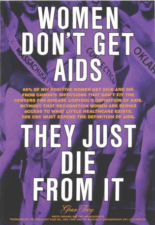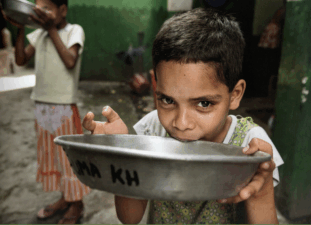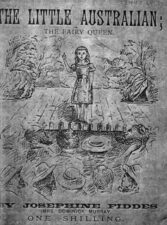WHN Admin.

Why can’t undercover activities be useful?
The Women’s Decameron[1] begins with Emma, confined to a maternity hospital with nine other mothers, decrying their lamentation that a skin infection has imprisoned them preventing their departure for home with their new born babies.
Stupid women, why were they so impatient? Were they in such a hurry to start the nappy-changing routine? God, the very thought was enough to make you want to give up: thirty liners, thirty nappies and as many swaddling sheets, rain or shine. And each one had to be boiled and ironed on both sides. It could drive you crazy. In the West they had invented disposable nappies and plastic pants long ago. Our people were supposed to be involved in industrial espionage, so why couldn’t they steal some useful secret instead of always going for electronics? [2]
Well might Emma ask!
Designing women’s sanitary products in India
Interestingly, a man asked a similar question about women’s sanitary products when he observed his new wife hiding the ‘nasty cloths’ she used during menstruation. Arunachalum Marunganantham found that Shanthi could not afford to buy sanitary pads for herself and his mother, the women in the household. He set about changing the situation when he found that a light small essential object costing 10 paise (£0.001) to make should be sold at 4 rupees (£0.04). He also found that the product was sold like ‘contraband’ so hidden in secrecy was its purchase. Investigating the success of experiments and research conducted with different combinations of materials was an uneasy process. However, eventually he devised a cheap machine to make successful sanitary napkins which can now be made and purchased at a reasonable cost by women. Women now not only have the products they need but have work producing them for village women. They also choose the brand name for the products they produce. Young women who used to leave school when they began menstruating now have access to cheap sanitary pads that give them the freedom to continue their education.[3] The Indian Government has now adopted Marunganantham’s idea and has begun a similar programme. He is considering taking his idea to women in need around the world. [4]
Tampons and a ‘discreet lifesaving message for family violence victims’
In an article in the Canberra Times Monday 4th April, 2016, p.5 Christopher Knaus writes about another aspect of sanitary products for women. Tampon packets in Australia are now more than a receptacle of products that feature in all sorts of advertisements which are becoming more abundant and vigorously publicised amongst fast cars and other items on television screens. Over past months packets of Cottons tampons have included a number that provides a ‘powerful lifeline’ to women suffering from domestic violence, or more aptly termed, criminal assault at home. This is an initiative by a non-profit organisation Share the Dignity and tampon company Cottons. The number is now available to women who otherwise would not have known where to seek help. The project is an outcome of a homeless initiative by the founder of Dignity, Rochelle Courtenay, who approached Cotton whose donations of tampons had already been a feature of a joint initiative to assist homeless women. Courtney says:
It’s discreet, men don’t ever go in to that tampon packet do they? A woman may see it one month, and then she may see it six months later and say: ‘Right, it’s time…I know what I need to do’.
Dignity runs an April collection of sanitary products with collection bins at more than 1000 sites.
Speciality pain killers for period pain
But wait, shouldn’t women be grateful that special attention has been given, and pain killers specially designed, to deal with menstrual pain? Of course, such dedication to women’s needs comes with an added expense: amongst the products deigned to deal with specific pains (headaches, back pain…) those for period pain were more expensive. [5] Well…alas, all the pain killers were the same, the company has been fined for false advertising and women have paid more for the same product they would have bought for a headache.
[1] Julia Voznesenskaya, (1990) Minerva.
[2] Voznesenskaya, p. 3
[3] An Australian overseas aid project that achieves a similar purpose is the establishments of female toilets at schools.
[4] Vikebe Venema, BBC magazine and an interview on Outlook on BBC World Service.
[5] Media coverage of Nurofen case


